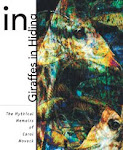Friday, August 26, 2011
Literary Review - John Sutherland on The World of Others: From Quotations to Culture
John Sutherland
SOUNDS FAMILIAR
The Words of Others: From Quotations to Culture
By Gary Saul Morson (Yale University Press 352pp £20)
Academics like me are skilled users of turnitin.com. Never heard of it? Ask the nearest undergraduate and watch their cheek blanch. Turnitin is the trade's leading 'plagiarism detector'. You upload the student's essay or dissertation and it's checked against trillions of words and phrases in seconds. Irritatingly, however, Turnitin turns in a lot of zombie quotes. Say, for example, a student opens an essay thus:
It is a truth universally acknowledged that Dickens, well aware that he lived in neither the best nor the worst of times, was more tolerant than his Vanityfairean rival of 'great men'. For Thackeray no man was a hero to his valet.
The detector is quite likely to claim six hits here. Should the conscientious student have appended footnotes citing Pride and Prejudice, A Tale of Two Cities, Ecclesiastes, John Bunyan, Carlyle, Goethe?
We think of our use of language as 'fluency'. There are, however, congealed lumps floating in it and, if we look beneath the surface, often more lumps than liquidity. Put another way, most language is pre-owned. The previous owners are, as Gary Morson instructs us, often worth knowing about. Take, for example (not one of Morson's examples), the indisputably most famous and quoted line in English literature, 'To be, or not to be, that is the question'.
Most theatregoers would think the sentence spit new. But should they also go to a performance of Marlowe's Doctor Faustus they would hear the following in the hero's magnificent opening soliloquy, in which he resolves to sell his soul: 'Bid Oncaymæon farewell, Galen come'. The Greek Oncaymæon transliterates as 'being and not being'. Where is Faustus a professor of philosophy? The University of Wittenberg. Where is Hamlet a student of philosophy? The University of - you guessed it. 'To be or not to be' is not a deeply original thought but a hackneyed sophomoric seminar topic. Hamlet is not thinking, he's quoting. ........................
(access the entire article here:
Literary Review - John Sutherland on <i>The World of Others: From Quotations to Culture</i>
Subscribe to:
Post Comments (Atom)












No comments:
Post a Comment